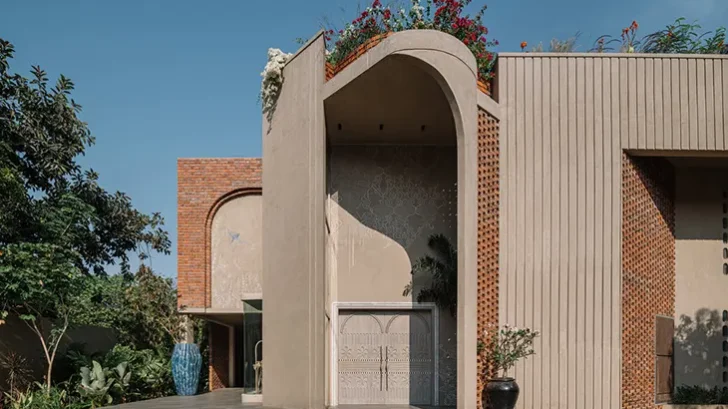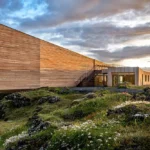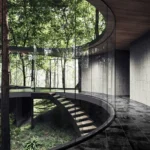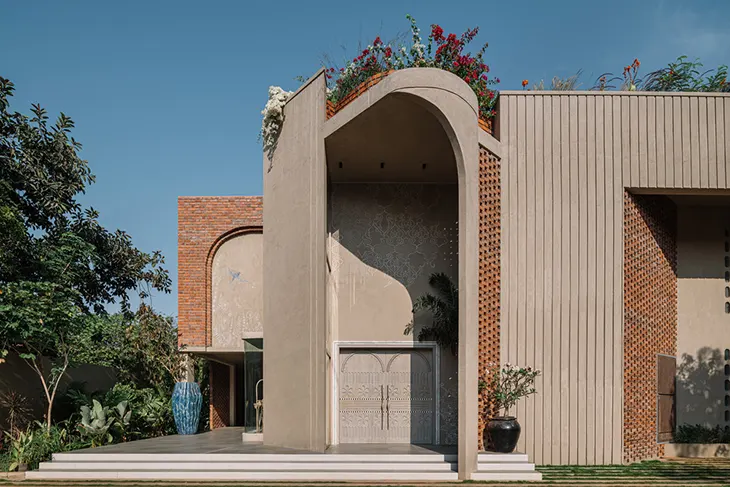
Completed in June 2025, Pennyroyal Tea sits quietly on the eastern coast of Tamil Nadu as a privately commissioned residence that reads more like a living archive. Designed by Multitude of Sins studio and built over two and a half years, the project brings together over 200 artisans from across India and centers sustainable craft as the foundation for architectural expression. Every aspect of the space, from its material choices to the community behind its making, resists the generic, instead offering a grounded, specific, and site-responsive form of domestic architecture.
HOUSING
The architecture does not rely on spectacle. Instead, it finds depth in the act of making. Around 80% of the furniture, lighting, and artworks were custom-crafted for the residence, resulting in an environment that feels built from the inside out. Mosaic flooring lines transitional areas, while brass fixtures and handcrafted furnishings define each room with care. The detailing speaks not of uniformity but of skilled variation, hands that know their materials and adapt them in context.
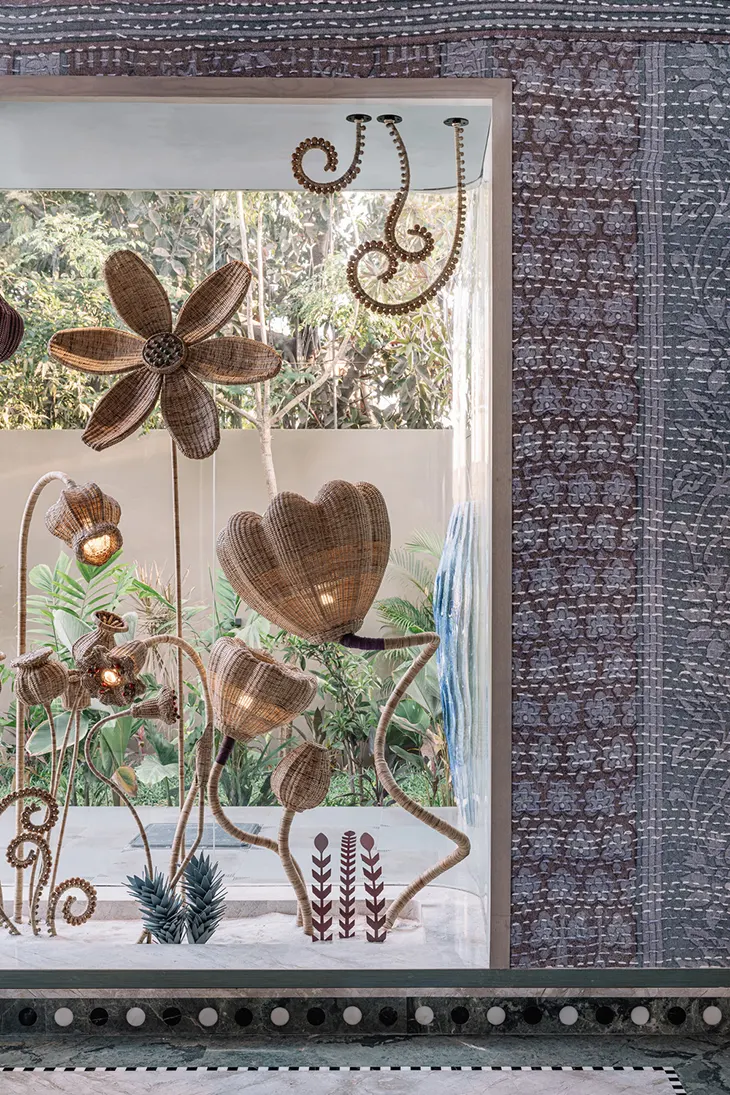
Pennyroyal Tea embraces locally sourced natural stone and solid wood, avoiding harmful chemical treatments in favor of finishes that are safer to breathe and easier to maintain. These choices aren’t aesthetic preferences alone; they reflect a low-impact construction strategy that reduces both embodied and operational carbon. Custom fabrication allowed the team to minimize waste and dependency on mass-produced products, while designing for disassembly ensures materials can be reused or recycled at the end of their lifecycle.
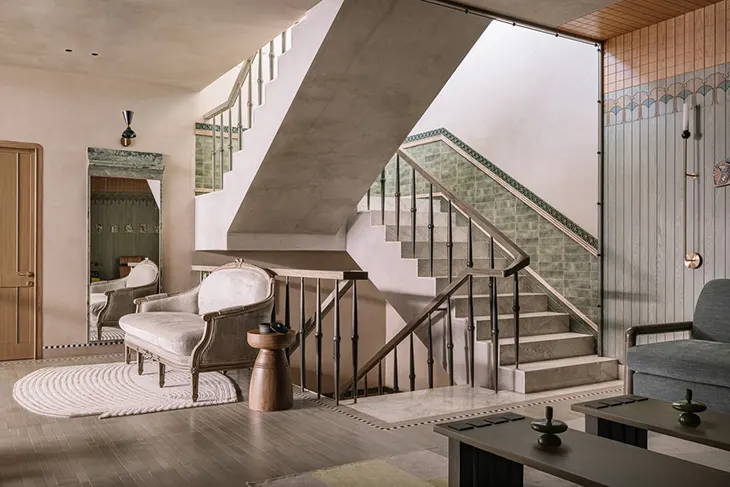
While the house reads as contemporary, its structure holds centuries of tradition. The work of the artisans is embedded into the architecture, not applied as decoration. Each brass hinge, carved panel, or wood joint carries forward a set of inherited techniques that are too often sidelined in favor of industrial efficiency. Here, those practices are not only preserved but evolved, integrated into a spatial system that privileges skill over speed.
The project also foregrounds social sustainability. By engaging artisans across regions and trades, from stonemasons and carpenters to metalworkers and tilemakers, the design team created a network of knowledge that remains active long after construction. This emphasis on collective authorship shifts attention away from a single architect or firm and instead places value on the distributed intelligence of the people who build.
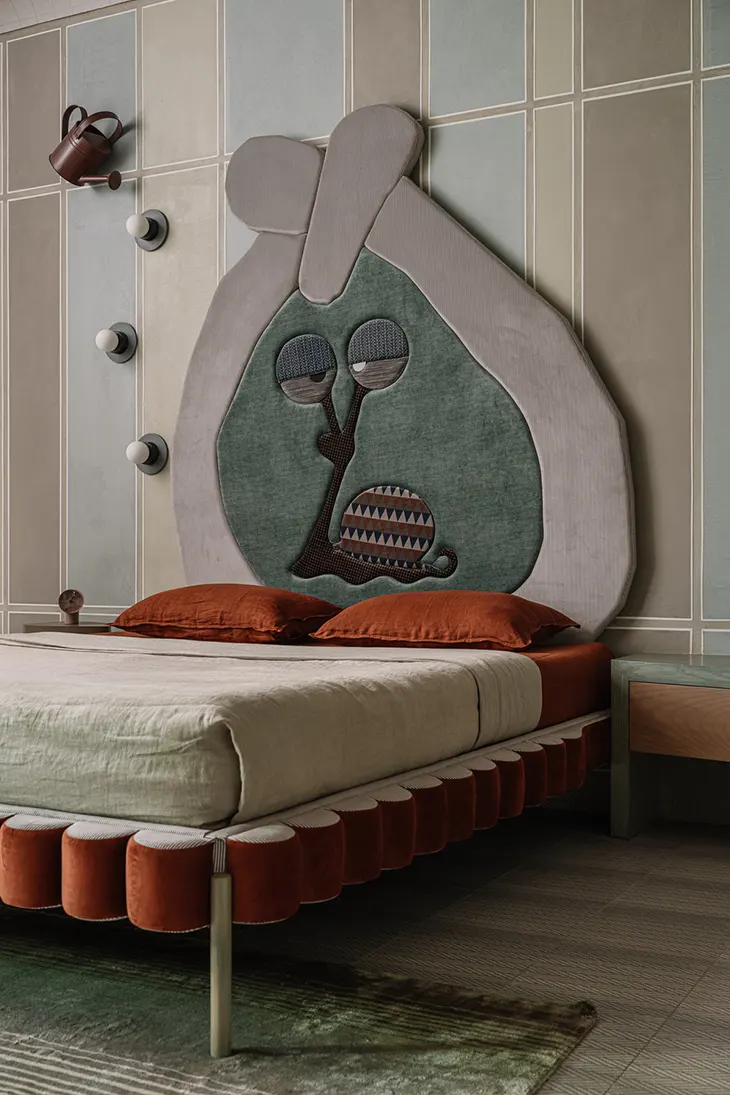
Pennyroyal Tea doesn’t read like a manifesto, but it makes a clear argument. Architectural detailing is not a finishing touch, it is the project. Through its material palette, sourcing logic, and participatory process, the residence pushes for an architectural model that is slower, more accountable, and far more local. The result is a space that doesn’t merely exist in its setting but grows from it.
